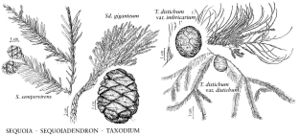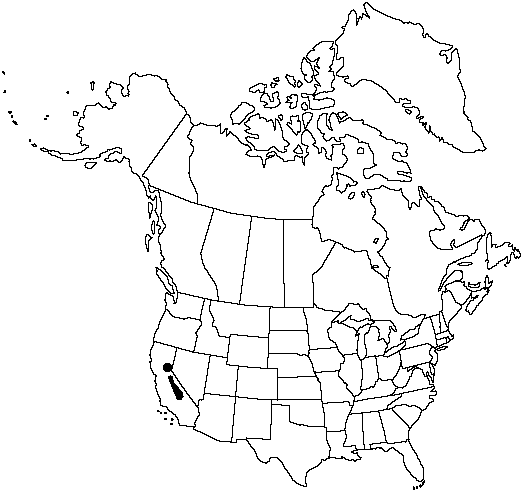Sequoiadendron giganteum
Amer. J. Bot. 26: 536. 1939.
Trees to 90 m; trunk to 11 m diam.; crown conic and monopodial when young, narrowed and somewhat rounded in age. Bark reddish-brown, to ca. 60 cm thick, fibrous, ridged and furrowed. Branches generally horizontal to downward-sweeping with upturned ends. Leaves generally with stomates on both surfaces, the free portion to ca. 15 mm. Pollen cones nearly globose to ovoid, 4–8 mm. Seed-cones 4–9 cm. Seeds 3–6 mm. 2n = 22.
Habitat: Mixed montane coniferous forests, in isolated groves on the w slopes of the Sierra Nevada
Elevation: 900–2700 m
Discussion
Mature individuals of this species are the most voluminous living organisms and among the most long-lived trees. Sequoiadendron giganteum was formerly included in Sequoia, under the later homonym Sequoia gigantea (Lindley) Decaisne, a conservative placement that still has merit (J. Doyle 1945; O. Schwarz and H. Weide 1962).
Redwood, including Sequoiadendron giganteum and Sequoia sempervirens, is the state tree of California.
Selected References
None.

